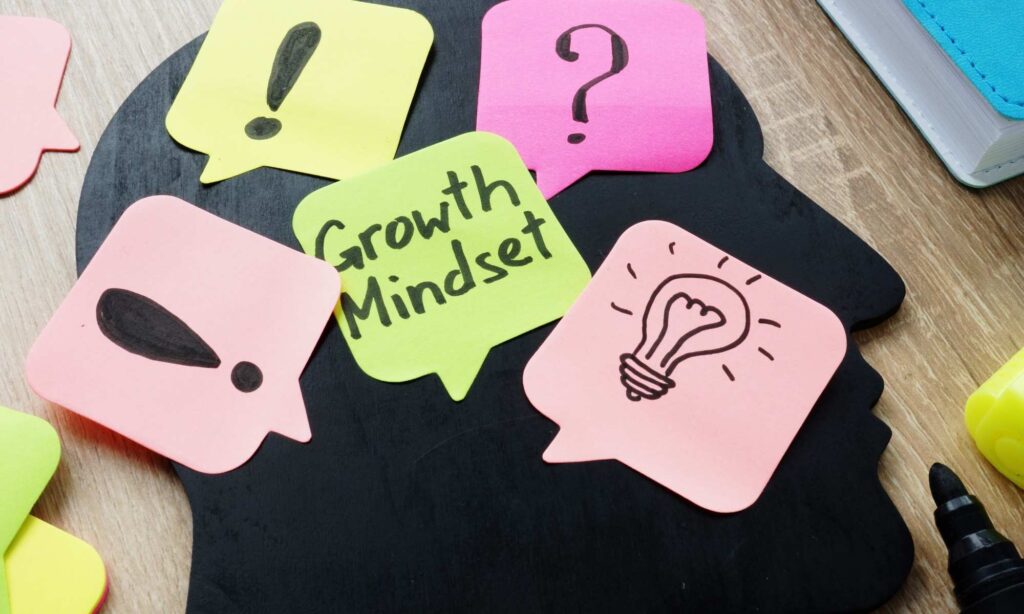Unlock Your Potential: Simple Self-Improvement Strategies That Actually Work

Table of Contents
Self-improvement strategies are the first step toward taking back control of your life and becoming the version of yourself you know you’re capable of. Ever feel stuck, unmotivated, or like you’re not living up to your full potential? Maybe you’ve found yourself saying things like, “I just don’t feel like myself lately,” or “I know I need a change, but I don’t know where to start.” You’re not alone – and the good news is, you don’t have to stay stuck.
It’s easy to complain about feeling lost, unhappy in your job, stuck in bad habits, or disconnected from your goals. But at some point, you have to take accountability. No one else can transform your life for you. When you commit to personal growth – even just a little each day – you start to break the cycle and build momentum toward the life you actually want.
Let’s explore some powerful and practical strategies for personal growth so you can stop waiting for change and start creating it.

What is Self-Improvement?
Self-improvement is a lifelong journey of intentional growth. It’s about consistently choosing to become better – mentally, emotionally, physically, and spiritually. It’s not about fixing what’s broken; it’s about evolving, learning, and stepping into your full potential.
Whether your goal is to be more confident in social situations, manage your time better, build a morning routine, overcome anxiety, or just feel healthier and more focused – self-improvement is the path that takes you there. It’s not about overnight change or dramatic transformations. It’s about small daily actions that compound over time.
For example:
- Someone struggling with procrastination might start using a planner to structure their day.
- A person who feels mentally drained might begin journaling to unload their thoughts and find clarity.
- If your relationships feel stuck, you might focus on improving communication or setting healthier boundaries.
The beauty of self-improvement is that it’s personal. You define the areas you want to grow in, and with time and commitment, you’ll begin to see real, lasting change – not just in your habits, but in how you think, feel, and live.
The Importance of Self-Improvement
Self-improvement is about making conscious choices to develop better habits, acquire new skills, and cultivate a strong sense of self-worth. The benefits include:
- Greater self-confidence
- Improved emotional intelligence
- Increased motivation and discipline
- Stronger relationships
- Enhanced overall well-being
By adopting powerful self-improvement strategies, you can unlock new opportunities and become the best version of yourself.
10 Powerful Self-Improvement Strategies to Start Today
Of course, you’ll want to know the best strategies you can implement – we’ll get to that in a bit. I just want to emphasize once more that self-improvement is a life-long journey, and I can only recommend starting a reading list to get deeper insights. You’ll see that a lot of them build on similar principles, and in the end, you’ll feel like you’ve heard it all. But I’d still suggest reading at least 3 to 5 books on each of these topics over the years.
And by the way: If you think you’re only 20-something and too young for self-help books – you’re wrong! I wrote this article especially for you. 😉

1. Cultivate a Growth Mindset
A growth mindset helps you turn setbacks into valuable learning experiences. Instead of avoiding failure or seeing it as a reflection of your worth, you learn to welcome it as an essential part of growth. People with a growth mindset believe that their abilities and intelligence can be developed through dedication and effort – this belief creates a love for learning and resilience in the face of challenges.
It’s not about always succeeding – it’s about staying curious, asking for feedback, and being willing to change. Even when progress feels slow, this mindset keeps you moving forward instead of giving up. Learn how to develop a growth mindset in this article.
💡 Journaling about daily challenges, mistakes, and the lessons they bring can solidify a growth mindset. Over time, you’ll start noticing how setbacks are shaping you into a stronger version of yourself.
Recommended Books on this topic:
Mindset: The New Psychology of Success, by Carol S. Dweck
A groundbreaking book that introduced the idea of fixed vs. growth mindsets. Dweck shows how shifting your beliefs about ability can unlock learning, resilience, and lasting success.
The 5 AM Club, by Robin Sharma
A motivational guide to owning your mornings and transforming your life. Sharma combines storytelling and strategy to help you build discipline and cultivate a mindset for greatness.
The Miracle Morning, by Hal Elrod
This energising, routine-based book encourages readers to start their day with intention. Elrod’s six daily practices are designed to fuel personal growth and mental clarity.
9 Things Successful People Do Differently, by Heidi Grant Halvorson
Backed by research, this concise guide reveals the key habits that drive high achievers. Halvorson breaks down mindset-related behaviours you can adopt to reach your goals more effectively.
Think and Grow Rich, by Napoleon Hill
A classic on the power of thought and belief, this book shows how mindset shapes success. Hill’s principles on desire, persistence, and visualisation remain influential decades later.
2. Set Clear and Achievable Goals
Without direction, it’s easy to feel stuck or overwhelmed. That’s where goal setting comes in. Break your bigger ambitions into smaller, realistic steps that feel doable day-to-day. Setting goals helps you clarify what you want, why you want it, and how to get there.
Use practical tools like vision boards, digital or paper planners, habit trackers, or monthly goal sheets to make your progress visible. Visual reminders of your goals help you stay focused and committed, especially when motivation dips.
And remember: goals aren’t set in stone. They can evolve as you grow. What matters is that you have something to aim for – and a plan to guide you there.
Recommended Books on this topic:
The Desire Map, by Danielle LaPorte
This book flips traditional goal-setting by starting with how you want to feel, then setting goals to match. It’s ideal for those seeking more alignment, intuition, and emotional fulfilment in their pursuits.
Your Best Year Ever: A 5-Step Plan For Achieving Your Most Important Goals, by Michael Hyatt
A practical 5-step plan for setting and achieving meaningful goals. Hyatt combines personal stories, research, and productivity tips to help you design your most successful year yet.
The Art Of Setting Smart Goals, by Anisa Marku
An excellent guide for beginners and experienced goal-setters alike, this book breaks down the SMART goal framework into actionable steps. It’s concise, clear, and perfect for turning vague aspirations into measurable achievements.

3. Develop Healthy Habits
Small habits compound into major results. Focus on fundamentals like eating nutritious food, exercising, sleeping well, and limiting screen time. These healthy routines directly support your mental clarity and energy levels.
Did you know that something as simple as a poor diet with processed food can even impact your mental health? We often get trapped by the simple convenience of fast food, since we’re too busy with other things – such as constantly scrolling on our phones, causing dopamine addiction. It’s high time to get back to healthy habits!
Recommended Books on this topic:
A practical, science-based guide to building better habits through small, consistent changes. Clear’s approach makes it easy to stay on track and turn positive behaviours into a lifestyle.
The 7 Habits of Highly Effective People, by Stephen R. Covey
A timeless framework for living with purpose and integrity. Covey’s principles help you build habits that align with your values and lead to long-term personal and professional growth.
The Power of Habit, by Charles Duhigg
This compelling book uncovers the science behind why habits form – and how to change them. Duhigg’s insights empower readers to take control of routines and create lasting transformation.
Focused attention is a habit, and this book shows you how to build it. Newport makes the case for eliminating distractions and developing the mental muscle for deep, meaningful work.
4. Practice Daily Self-Reflection
Self-awareness is a superpower when it comes to personal development. Without taking time to reflect, it’s hard to recognise what’s working, what’s holding you back, or how you’re changing. That’s why creating space for daily reflection is key.
This could be as simple as a five-minute journaling session before bed, noting your wins, what challenged you, and how you responded emotionally. Over time, you’ll start to spot patterns in your behaviour, celebrate your growth, and adjust where needed.
Mindfulness practices like meditation or even quiet walks can also help you reconnect with your thoughts and emotions. Reflection turns experiences into wisdom – and that’s where true growth begins.
✍️ Our Undated Daily Planners include weekly reflection prompts to help you stay on track.
Recommended Books on this topic:
The Subtle Art of Not Giving a F*ck, by Mark Manson
A brutally honest guide to living a more intentional life by choosing what truly matters. Manson’s no-fluff approach encourages deep self-reflection and the courage to let go of societal pressures.
Stop Overthinking, by Nick Trenton
This practical book offers tools to quiet mental noise and break free from analysis paralysis. Trenton helps readers gain clarity, reduce anxiety, and develop a more mindful inner dialogue.
Let That Sh*t Go, by Monica Sweeney
A fun, irreverent workbook filled with prompts and affirmations to release negativity. Sweeney’s witty tone makes self-reflection feel lighter while encouraging emotional clarity and personal growth.

5. Prioritise Lifelong Learning
Growth doesn’t end when school does. If you want to continue evolving, it’s essential to stay open to new knowledge and skills. Lifelong learning isn’t just about academics – it’s about curiosity, self-discovery, and staying mentally agile.
You could read self-development books, listen to podcasts during your commute, enrol in online courses, or simply ask more questions during your daily conversations. Try new hobbies, challenge your beliefs, or attend events where you can connect with others who inspire you.
💡 Keep a learning journal where you jot down takeaways from books, insights from conversations, or “aha” moments from podcasts. This habit not only reinforces what you’re learning but also encourages you to keep exploring.
6. Master Your Time
Procrastination is the enemy of progress – and one of the biggest roadblocks to personal growth. It often stems from feeling overwhelmed, unclear about priorities, or simply stuck in distraction mode. That’s why learning to manage your time effectively is a game-changer.
Try proven methods like the Pomodoro technique (25-minute focus intervals with short breaks) or time-blocking, where you schedule your day into focused segments. These tools bring structure and clarity, helping you stay productive without burning out.
💡 Using a productivity planner can take the guesswork out of your day, allowing you to organise tasks, track habits, and prioritise what matters most. With a clear plan, action becomes easier – and procrastination loses its grip.
Recommended Books on this topic:
Four Thousand Weeks: Time Management for Mortals, by Oliver Burkeman
A philosophical take on our limited time, this book invites you to rethink productivity. Burkeman challenges the obsession with efficiency and encourages a more intentional, fulfilling approach to life.
Getting Things Done: The Art of Stress-Free Productivity, by David Allen
A foundational time management system that helps you organise tasks and clear mental clutter. Allen’s GTD method boosts focus, reduces overwhelm, and helps you stay on top of it all.
The 4-Hour Work Week, by Timothy Ferris
A bold reimagining of work and freedom, this book teaches how to automate, outsource, and prioritise what really matters. Ferriss’s strategies are perfect for reclaiming your time and energy.
Feel-Good Productivity, by Ali Abdaal
A fresh, science-backed take on getting things done by feeling good first. Abdaal blends psychology with real-life hacks to help you manage time more joyfully and effectively.
7. Surround Yourself with Positive Influences
Your environment and the people in it directly impact your mindset. If you’re constantly surrounded by negativity or apathy, it’s much harder to stay motivated. On the other hand, being around people who are driven, kind, and supportive can elevate your thinking and push you toward your goals.
Seek out mentors, friends, or communities who inspire you to grow. These connections offer more than good company – they provide accountability, encouragement, and fresh perspectives when you’re feeling stuck.
💡 You don’t need dozens of people – just a few quality relationships can make all the difference.

8. Strengthen Emotional Resilience
Life doesn’t always go according to plan. That’s where emotional resilience comes in – the ability to bounce back from setbacks, stay grounded during stress, and keep moving forward with grace.
You can build resilience through gratitude journaling, mindfulness practices, deep breathing, or even short morning reflections that help you center yourself before the chaos begins. Learning to regulate your emotions also leads to better decisions and more peace of mind.
💡 A five-minute morning journaling habit – just jotting down what you’re grateful for or how you want to feel – can shift your entire day’s outlook.
Recommended Books on this topic:
The Art of Resilience, by Ross Edgley
Part memoir, part mental toughness manual, this book draws from extreme physical challenges to teach lessons on endurance. Edgley’s philosophy blends stoicism, discipline, and mindset for lasting resilience.
A research-driven deep dive into what makes people stick with goals long-term. Duckworth shows that passion and perseverance – not talent – are the keys to bouncing back and thriving under pressure.
Emotional Agility, by Susan David
A powerful guide to navigating life’s ups and downs with flexibility and self-compassion. David offers tools to face difficult emotions, break negative patterns, and build real inner strength.
9. Step Outside Your Comfort Zone
Growth and comfort rarely go hand in hand. If you want to level up, you have to be willing to stretch yourself – mentally, emotionally, or even socially. Whether it’s speaking up in a meeting, trying a new skill, or travelling somewhere unfamiliar, small acts of courage build lasting confidence.
The more you challenge yourself, the more you realise you’re capable of more than you thought. These experiences also help you break free from limiting beliefs and expand your comfort zone, one step at a time.
💡 Try setting a “weekly stretch goal” – one thing that pushes you slightly outside your norm – and reflect on it in your journal. The results may surprise you.
10. Use Affirmations to Reinforce Positive Change
Your thoughts shape your reality, and affirmations help you take control of that inner narrative. By repeating positive, empowering statements, you can gradually replace self-doubt with confidence, anxiety with calm, and confusion with clarity.
Affirmations are especially powerful when paired with other self-improvement tools like journaling or morning routines. Writing them down daily helps lock them into your subconscious and align your actions with your goals.
💡 For example: “I am focused, disciplined, and moving forward every day.” It may feel small, but over time, those words create big shifts.
Recommended books to understand more about the subconscious mind and neuroplasticity:
The Power of Your Subconscious Mind, by Joseph Murphy
A classic on the mind-body connection, this book explores how thoughts and affirmations shape reality. Murphy shows how reprogramming the subconscious can unlock health, success, and peace of mind.
The DNA Field and the Law of Resonance, by Pierre Franckh
Combining quantum theory and mindset work, Franckh explores how our thoughts influence the energy field around us. A fascinating read on how intention, belief, and resonance create lasting change.
Master Your Emotions, by Thibaut Meurisse
A practical guide to understanding emotional patterns and rewiring your mental habits. Meurisse explains how self-awareness, affirmations, and mindset shifts can transform your inner world.
The Brain That Changes Itself, by Norman Doidge M.D.
A groundbreaking look at neuroplasticity, this book shares real stories of the brain’s ability to adapt and heal. Doidge’s research proves that we can literally rewire our minds through practice and belief.
Want help getting started? Our planners include space for weekly affirmations to help you stay motivated and mindful.

20 Affirmations for Personal Growth
- I am committed to becoming the best version of myself.
- I embrace change and growth with an open heart.
- Every day, I improve and evolve.
- I am capable of achieving my dreams and goals.
- I trust the process of self-improvement.
- I am resilient and adaptable.
- I learn from my mistakes and move forward.
- I create opportunities for growth and success.
- I attract positivity and abundance into my life.
- I am confident in my ability to overcome challenges.
- I invest in my personal development daily.
- I celebrate my progress, no matter how small.
- I radiate self-confidence and inner strength.
- I am disciplined and focused on my goals.
- I am worthy of happiness and success.
- I prioritise self-care and mental well-being.
- I am a constant learner, growing every day.
- I release self-doubt and trust my abilities.
- I am surrounded by love and support.
- I believe in myself and my potential.
Final Thoughts
Personal growth doesn’t require a life overhaul overnight – it’s about taking small, intentional steps. By applying these self-improvement strategies, you’ll gain clarity, increase confidence, and develop emotional strength.
Start today. Choose one area to focus on and make it part of your daily routine. Tools like journals and planners can help you stay grounded, track your progress, and celebrate your transformation – one day at a time.
Which strategies did you try and how did they benefit you? Let me know in the comments!
Disclaimer: As an Amazon Associate I earn from qualifying purchases.







